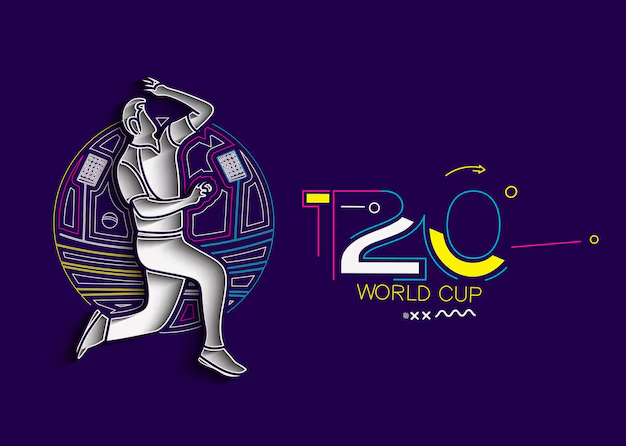Sports have been an integral part of human culture for centuries. From ancient civilizations to modern-day global events, they have provided entertainment, fostered competition, and brought people together. The role of sports in building community and fostering unity is undeniable, as they serve as a powerful force that transcends barriers of race, culture, and socio-economic status. In this article, we explore how sports unite people, strengthen communities, and promote a sense of belonging and solidarity.
The Power of Sports to Unite People
At its core, sports are about competition and collaboration, but they also have an extraordinary ability to bring people together, regardless of their background. Sports events, from local matches to international competitions, have a unique way of bridging cultural, racial, and geographical divides. Whether it’s cheering for a local team or supporting national athletes on the global stage, sports have a unifying power that fosters a sense of belonging.
For example, national sporting events like the Olympics or the FIFA World Cup encourage a sense of national pride and unity, as people from different walks of life come together to support their team or country. These events often transcend political and social divisions, with participants and fans from different backgrounds uniting under a common banner.
Similarly, local sports leagues and recreational activities create opportunities for individuals from diverse communities to engage in shared experiences. These activities promote teamwork, build relationships, and help participants feel like they are part of something greater than themselves.
Strengthening Community Bonds
Sports also play a vital role in strengthening community bonds. Local sports teams, whether in schools or amateur leagues, create spaces where individuals can forge connections with one another. These teams often become more than just places for competition; they become an important part of a community’s identity.
Youth sports, in particular, are an essential tool in developing strong community ties. They teach young people not only how to work as a team but also how to respect one another and value diversity. Coaches and teammates often become role models and sources of inspiration for children, creating long-lasting relationships that extend beyond the field or court.
Additionally, community sporting events, such as charity runs, local tournaments, or fun fairs, provide a sense of togetherness and allow individuals to give back to their communities. These events build a collective sense of pride and identity, contributing to a strong and cohesive social fabric.
Promoting Inclusion and Equality
One of the most powerful aspects of sports is their ability to promote inclusion and equality. Sports, by their nature, level the playing field—regardless of a person’s background, they are given the opportunity to participate and succeed based on their skills and performance. This inclusivity helps break down societal barriers and promote diversity.
Professional leagues, such as the NBA, NFL, and Premier League, have increasingly become platforms for advocating for social justice issues. Athletes use their visibility to challenge racial inequality, support marginalized communities, and advocate for policy changes. This has resulted in a global conversation about the role of sports in promoting equality both on and off the field.
Moreover, adaptive sports programs for individuals with disabilities show how sports can create opportunities for everyone to participate, fostering a more inclusive and equal society. The Paralympic Games, for instance, provide athletes with disabilities a stage to showcase their talent, demonstrating that the spirit of competition and unity can include everyone, regardless of their physical abilities.
Fostering Emotional Well-being
Sports are not only about physical activity—they are also about mental and emotional health. Participation in sports can reduce stress, improve self-esteem, and foster a sense of accomplishment. This is especially important in community-building, where shared emotional experiences during sports events help strengthen relationships among community members.
For example, the highs and lows experienced during a local sports competition, whether it’s winning a game or overcoming a tough loss, allow people to bond over common experiences. Fans who attend games or watch from home are also often emotionally invested in the success or failure of their teams, which fosters a collective sense of belonging and emotional support.
The power of sports to create shared emotional experiences can lead to positive effects on community cohesion. These experiences provide opportunities for people to connect on a deeper level, share in moments of joy and disappointment, and ultimately form stronger relationships with those around them.
Global Impact: The Role of International Competitions
On the international stage, sports offer a unique platform for fostering unity between nations. Events such as the FIFA World Cup, the Olympics, and the Rugby World Cup bring together athletes from different countries to compete, but they also offer a chance to celebrate cultural diversity, mutual respect, and global cooperation.
International sports competitions often provide a moment of unity, where people of all nations come together to watch their athletes compete. These events showcase the best of human skill and resilience and often create opportunities for countries to set aside political differences and build diplomatic ties through friendly competition.
Sports diplomacy, where sporting events are used as a tool to foster peaceful relationships between nations, has proven to be a successful means of bridging gaps and promoting peace. Through these events, the world witnesses firsthand how sports can transcend borders, cultures, and ideologies, uniting people through the spirit of competition and mutual respect.
FAQs About the Role of Sports in Building Community and Unity
- How do sports promote community building? Sports promote community building by creating shared experiences, fostering teamwork, and encouraging collaboration among individuals from diverse backgrounds.
- Can sports help reduce social inequality? Yes, sports have the power to reduce social inequality by providing a level playing field where individuals are judged based on their skills and performance, not their background or socio-economic status.
- What are some examples of sports fostering unity between nations? The Olympics, FIFA World Cup, and other international sporting events bring people from different nations together to celebrate their shared love of sport, creating moments of global unity and cooperation.
- How do youth sports benefit communities? Youth sports provide opportunities for young people to learn teamwork, develop social skills, and build relationships that strengthen the bonds within their communities.
- Can sports contribute to mental health? Yes, participation in sports can improve mental well-being by reducing stress, boosting self-esteem, and promoting emotional resilience through shared experiences.
- What role does sports play in promoting diversity? Sports create a space where people of all races, genders, and backgrounds can participate and succeed based on their abilities, promoting diversity and inclusion.
- How do athletes use their platform to promote social change? Many athletes use their visibility to advocate for social justice, challenge inequality, and raise awareness about important issues, contributing to social change through the platform sports provide.
Conclusion
Sports are much more than games; they are a vehicle for building community, fostering unity, and promoting social change. By providing a platform for competition, inclusion, and emotional connection, sports play a pivotal role in creating cohesive and resilient communities. Whether locally or globally, sports have the unique ability to transcend boundaries and bring people together, fostering shared experiences that promote unity and social well-being.
Key Takeaways:
- Sports play a key role in building community by creating shared experiences and fostering teamwork.
- They promote inclusion and equality by offering a level playing field and advocating for social justice.
- Sports contribute to emotional well-being by reducing stress, improving self-esteem, and fostering connections.
- International sports events unite nations, promote diversity, and create opportunities for diplomacy and peace.
- Whether on a local or global scale, sports are a powerful tool for fostering unity and strengthening the social fabric.

